#rachmaninov: prelude in g minor op. 23
Text
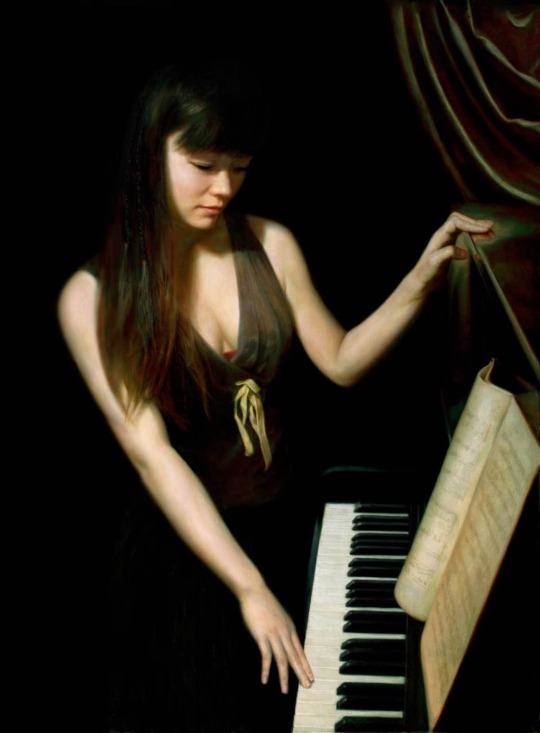
余小儀 XiaoYi Yu
Chinese, b. 1949
═════════ ✾ ═════════
Yuja Wang – Rachmaninov: Prelude in G Minor, Op. 23, No. 5 (Live at Philharmonie, Berlin / 2018)
youtube
Yuja Wang's philosophy of music is both simple and profoundly complex. “I want to relate all life to music,” she recently told veteran British critic Fiona Maddocks. The Beijing-born pianist’s latest album for Deutsche Grammophon 'The Berlin Recital' captures the white heat of solo works by Rachmaninov, Prokofiev, Scriabin and Ligeti, a trio of Russians together with one of the late 20th-century’s greatest composers.
#yu xiaoyi#余小儀#xiaoyi yu#yuja wang#rachmaninov: prelude in g minor op. 23#5#live at philharmonie berlin / 2018)#Youtube
30 notes
·
View notes
Text
Family
(AKA some of my Tom “Iceman” Kazansky headcanons)
Warnings: Tom “Iceman” Kazansky’s father’s A+ parenting (not), mentions of cancer.
Author’s Note: This was instigated by @callsign-skydancer, after she sent me a very insightful message, and I just had to go with it, until, voilà, I churned this out in an hour and a half.
I’ve had these headcanons for a while now, but it’s because of Sky that I decided to get them down.
I’ll be using these in some later stories, so if you see some copy-pasting, you didn’t see anything, self-plagiarism doesn’t count, 😂.
I have no idea if this makes any sense, I wrote this in what I feel is a weird tense, but I have to get this out of my head, so I can finish “Wherever You Go”.
Enough of the Authoress talking, here we go!

Family has a great deal of meaning for Thomas Kazansky.
It affects and has affected him in more ways than one, and it continues to influence and shape him.
It was why he joined the Navy.
Most people assume that his father was Navy, because they hear higher-ranking officers whisper “He’s related to Kazansky” or things like that, but they’d be wrong.
His father was not Navy.
His father is Dr. Vasily Kazansky, a prominent Honolulu cardiologist, who detests all things military, who wanted nothing but for Tom to follow in his footsteps, demanding utmost academic excellence in preparation for medical school, creating a habit drilled into him that carried over into Tom’s service.
His grandfather, however, was Captain Sergei Kazansky, a highly decorated US Navy officer who served during World War II.
As a child, during visits to his Dedushka Sergei and Babusya Anya, young Thomas could be found in his grandfather’s arms, listening wide-eyed to Sergei’s stories of his time in the Navy.
It was Sergei Kazansky who instilled in Tom a love of country, and the desire to serve.
Tom’s decision to join the Navy and attend Annapolis was what drove a final wedge between Tom and his father, who detested the military for taking his father, Sergei, from him, in more ways than one, both physically, and emotionally, Sergei not knowing back then how to handle his trauma.
It was his grandfather who pinned the Lieutenant Junior Grade bars on his uniform, and Tom will never admit it, but he had tears in his eyes when Sergei embraced him and whispered in his ear, “Я так горжусь тобой, Томас,” words his own father never said to him.
It broke his heart when Sergei died of lung cancer three months before he was slated to attend TOPGUN.
But his memories and the lessons his Dedushka taught him would stay with him forever.

Most people would never assume that Tom “Iceman” Kazansky would have an artistic bone in his body, but they would be absolutely wrong.
One of Tom’s best kept secrets was that he is a very accomplished pianist.
He was taught by his mother, Yelena, how to play the piano, and music ran in her family, her own father, Oleg, having been a violinist with the USSR State Symphony Orchestra, before his defection to America.
Tom’s fondest memories of his mother are of afternoons spent with Yelena teaching him to play the piano, after dragging him from his homework, which enabled him to play Chopin at twelve, followed by the two of them listening to recordings of classical music, some of them featuring his grandfather Oleg’s playing, his father’s long hours at work enabling this time away from studying without censure.
One of his most prized possessions is a vinyl record which he inherited from his mother, of Shostakovich’s “Leningrad Symphony”, where his grandfather Oleg can be heard playing second chair violin.
In general, Tom’s favorite pieces to play are Chopin, but depending on his mood, what he plays varies.
When he’s at his most neurotic, Bach comes easier, the precision required to play those pieces giving his mind something to fixate on.
When he’s upset or angry, he hammers away at Scriabin, and some pieces of Rachmaninov, like “Prelude in G Minor (Op. 23 No. 5)” and “Prelude in C Sharp Minor (Op. 3 No. 2)” and Beethoven’s “Piano Sonata No. 8 in C Minor (Pathétique)”.
When he’s feeling a little drifty, he goes for Satie and Debussy, or “The Lark” by Glinka and Balakirev.
When he’s happy, Chopin’s “Heroic” polonaise is a must.
When he’s lonely, Chopin’s “Nocturne No. 20 in C Sharp Minor (Posthumous)” is a standby, because of how it reminds him there’s always light at the end of the tunnel.
He’s proud to say he can play his dream piece from his early high school years, Liszt’s transcription of “La Campanella”, though he still thinks he can get it just a little bit faster.
His most recent dream pieces are Rachmaninov’s “Piano Concerto No. 2”, and Liszt’s “Rondo Fantastique (El Contrabandista)”.
It’s because of him that Bradley is as good a pianist as he is, having been the Baby Goose’s teacher on the instrument.
He wishes Bradley would show off the classical pieces he knows more than his rendition—great as it is—of “Great Balls of Fire”.

Family has shaped Thomas Kazansky for better and for worse—there are still days he can hear his father telling him an A- wasn’t going to get him into any half decent Ivy League, or that he had to try harder, that his best needed to be better, and those are the days he plays Bach, or Scriabin, Rachmaninov, and Beethoven—but it was also what made him who he was, what led him to what he loves doing, and what led him to the family he chose.

Taglist
@valmare
@callsign-skydancer
@permanentlyexhaustedpigeon88
@tadomikiku
If you’d like to join my taglist, just send me an ask!
#i wrote this instead of sleeping#please be kind#bahaha 🤣#top gun#top gun headcanon#top gun headcanons#tom iceman kazansky#tom kazansky
37 notes
·
View notes
Video
youtube
Yuja Wang – Rachmaninov: Prelude in G Minor, Op. 23, No. 5 (Live at Phil...
0 notes
Audio
Alla marcia, indeed.
19 notes
·
View notes
Text
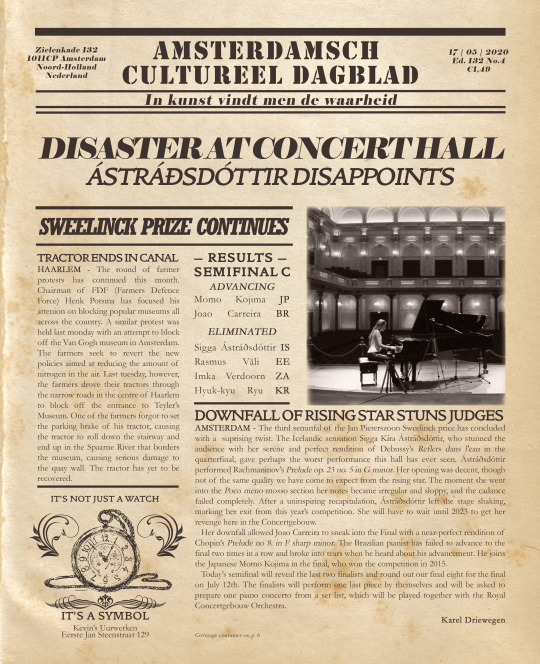
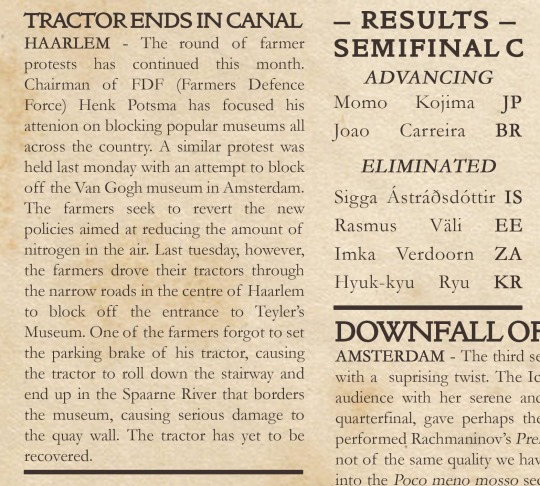
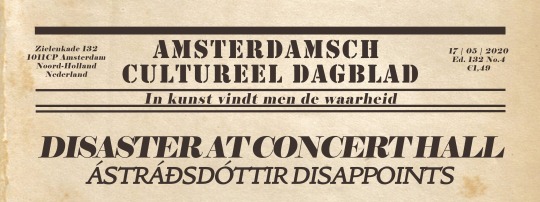
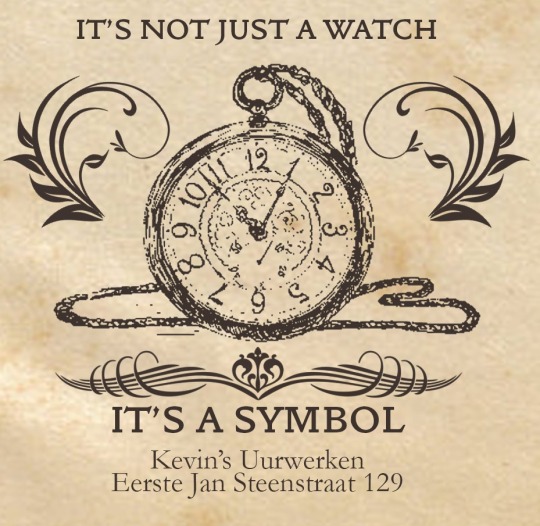
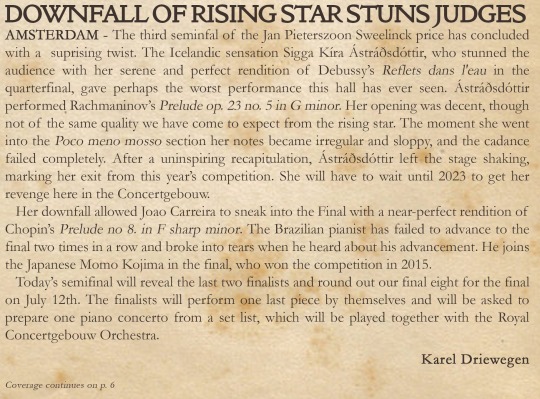
In honour of me finally talking about farewell again, now with additional pictures that are actually legible! It's the newspaper from the day after Sigga's performance in Amsterdam.
Transcript & Taglist:
Image shows the ‘Amsterdamsch Cultureel Daglbad’ newspaper with the subtitle ‘In Kunst Vindt Men De Waarheid’
DISASTER AT CONCERT HALL - ÁSTRÁÐSDÓTTIR DISAPPOINTS
Results - Semifinal C
Advancing:
Momo Kojima - JP
Joao Carreira - BR
Eliminated:
Sigga Ásráðsdóttir - IS
Rasmus Väli - EE
Imka Verdoorn - ZA
Hyuk-kyu Ryu - KR
DOWNFALL OF RISING STAR STUNS JUDGES
amsterdam - The third seminfal of the Jan Pieterszoon Sweelinck price has concluded with a suprising twist. The Icelandic sensation Sigga Kíra Ástráðsdóttir, who stunned the audience with her serene and perfect rendition of Debussy’s Reflets dans l'eau in the quarterfinal, gave perhaps the worst performance this hall has ever seen. Ástráðsdóttir performed Rachmaninov’s Prelude op. 23 no. 5 in G minor. Her opening was decent, though not of the same quality we have come to expect from the rising star. The moment she went into the Poco meno mosso section her notes became irregular and sloppy, and the cadance failed completely. After a uninspiring recapitulation, Ástráðsdóttir left the stage shaking, marking her exit from this year’s competition. She will have to wait until 2023 to get her revenge here in the Concertgebouw.
Her downfall allowed Joao Carreira to sneak into the Final with a near-perfect rendition of Chopin’s Prelude no 8. in F sharp minor. The Brazilian pianist has failed to advance to the final two times in a row and broke into tears when he heard about his advancement. He joins the Japanese Momo Kojima in the final, who won the competition in 2015.
Today’s semifinal will reveal the last two finalists and round out our final eight for the final on July 12th. The finalists will perform one last piece by themselves and will be asked to prepare one piano concerto from a set list, which will be played together with the Royal Concertgebouw Orchestra.
- Karel Driewegen
TRACTOR ENDS IN CANAL
HAARLEM - The round of farmer protests has continued this month. Chairman of FDF (Farmers Defence Force) Henk Potsma has focused his attenion on blocking popular museums all across the country. A similar protest was held last monday with an attempt to block off the Van Gogh museum in Amsterdam. The farmers seek to revert the new policies aimed at reducing the amount of nitrogen in the air. Last tuesday, however, the farmers drove their tractors through the narrow roads in the centre of Haarlem to block off the entrance to Teyler’s Museum. One of the farmers forgot to set the parking brake of his tractor, causing the tractor to roll down the stairway and end up in the Spaarne River that borders the museum, causing serious damage to the quay wall. The tractor has yet to be recovered.
Taglist: @henrike-does-writing-sometimes @ink-fireplace-coffee @writing-is-a-martial-art @magic-is-something-we-create @florraisons @hysteriwah @chayscribbles
13 notes
·
View notes
Text
die luft der freiheit weht
The wind of freedom blows
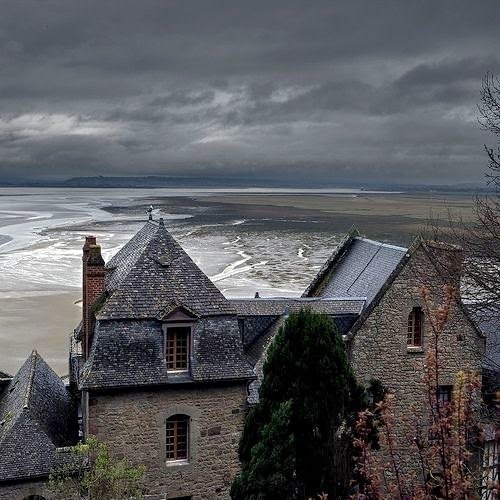
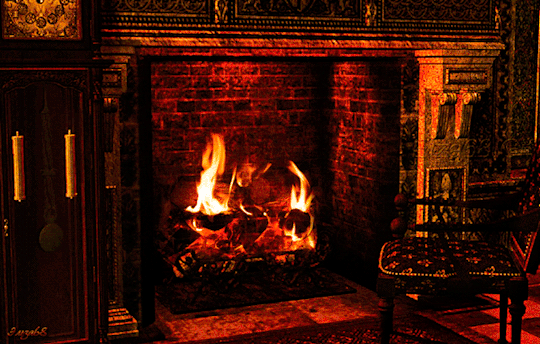
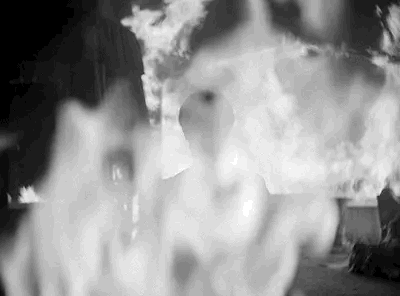
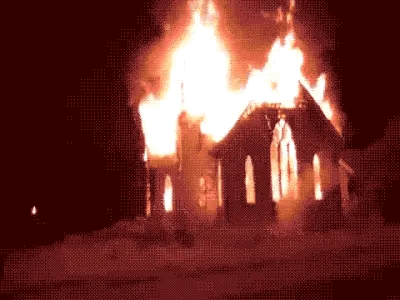

die luft der freiheit weht The wind of freedom blows
2 notes
·
View notes
Text
I like this pieces 💓
The first one I like is because my bestie is playing and slaying it
The second is played by Richter
I said it all by that
#classical piece#classical piano#classical music#classical#jazz piano#piano music#pianoforte#piano cover#piano memes#pianopractice#twosetviolin#Horowitz#Scarlatti#Mozart#Bach#band memes#violin music#Classicaloid#Classical memes#Spotify#SoundCloud
17 notes
·
View notes
Audio
Rahmaninov | Sol Minör Prelüd Op.23 No.5
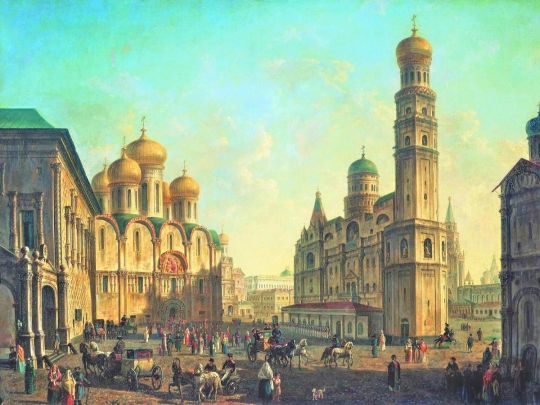
19 notes
·
View notes
Video
youtube
Rachmaninov: Prelude in G Minor, Op. 23, No. 5 (Live at Philharmonie, Be...
4 notes
·
View notes
Photo
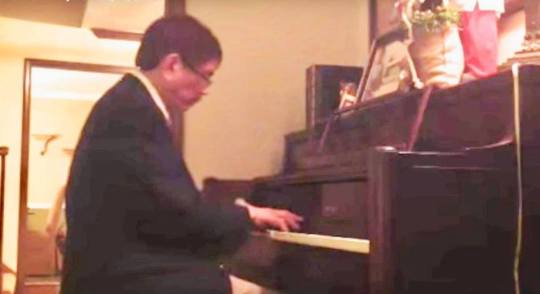
The above photo is yours truly trying to play “Traumerei” on the piano.
ACCEPTING THE 30-DAY “TRAUMEREI” CHALLENGE
By Jesse Reyes
“Traumerei” a piano piece composed by renowned German Romantic composer Robert Alexander Schumann, in my humble opinion, is one of the most beautiful musical compositions ever written.
Traumerei is a German word meaning “daydream” or “reverie”—indeed, when you listen to this piece, especially when played by internationally-acclaimed classical pianist Valentina Lisitsa, you are swooned and immediately transported to dreamland!
This piece “Traumerei” (which I laminated so it would withstand the ravages of time) has been sitting on my piano music sheet stand for a few years now (although less than a decade, I’m certain!). I have played it a few times, always with several mistakes, as I struggle to play the “flat” and “sharp” notes (there’s a plethora of these).
So last week, I decided to challenge myself—to practice this piece for 30 consecutive days and see if I could play it without a single mistake and record it in YouTube for posterity (and possibly posting it in Facebook for those who may be interested in listening to it!) as one of my legacies to my kids, their kids and grandkids, and so on and so forth.
I’m calling this my 30-day “Traumerei” challenge to myself. This is my dream (hopefully not an “Impossible Dream” as Andy Williams would say) or reverie (I will be daydreaming when this happens!). This will also be a test if the cliche “practice makes perfect” still works in this day and age. If I don’t achieve my goal in 30 days, I could always extend it to 45 or 60 days. I am giving myself a lot of slack on account of my age!
Before I presented myself the challenge, I listened to YouTube so I would know the right tempo and body language to use! The first pianist I listened to was an elderly man with a grim face whose facial expression never changed and whose body was stiff as a board, never moving (except his hands and eyes, of course) the whole time he played the piece “Traumerei”. I think he was daydreaming. I vowed to myself that I would never play like him.
Then I listened to a young (I found out that she was about 38 years old when they taped her performance in Korea) blond Ukrainian-born pianist named Valentina Lisitsa. I noticed her nimble fingers gliding, sliding, jumping, dancing, thrusting and crossing over like a ice skater as she gracefully does her routine on the ice. Her facial expression changed with the tempo. Her smooth head and body movements were beautiful to watch.
I promised myself that I would try to simulate the way Valentina played “Traumerei” as well as copy the movement of her head and body, allowing for the limitations of my stiff fingers, neck and body, of course!
Many of Lisitsa’s performances as she traveled around the world, can be viewed on YouTube. After I watched and listened to her play "Traumerei” on YouTube, I listened to her play the next two pieces, namely Rachmaninoff's Prelude in G minor op. 23 #5 and Beethoven’s Sonata #8 in C minor Op. 13. She played all three compositions in succession in the same concert without any notes. She was phenomenal, indeed. I could have watched and listened to her play all day, but my Facebook and other writing constraints precluded me from doing so!
Valentina Lisitsa is married to Russian-born Alexei Kuznetsoff, a classmate of hers in piano school. They moved to the U.S. in 1991 and reside in North Carolina. According to Wikipedia, “Lisitsa and her husband put their life savings in recording a CD of Rachmaninov concertos with the London Symphony Orchestra in 2010. In the spring of 2012, before her Royal Albert Hall debut, Lisitsa was signed on to Decca Records, who later released her Rachmaninov CD set. By mid-2012 she had nearly 50 million views on her YouTube videos.” I would be very happy if I will have had only 1 million views in YouTube for my self-imposed rendition!
Robert Schumann, composer of “Traumerei” "was rightly considered an advanced composer in his day, and he stands in the front rank of German Romantic musical figures."
Schumann, however, led a troubled life. "He had been mentally unstable all his life, haunted by fears of insanity since the age of 18, and the change of style noticeable in the music of the early 1850s—the increasing angularity of his themes and complication of his harmony—may be attributed to other causes, including the influence of J.S. Bach. Schumann, even his critical writing, which is as fantastic, subjective, and lyrical as his early music, constitutes a valuable document of the trend and period,” according to the Encyclopedia Britannica.
Schumann died at the age of 46. Had he lived longer, we probably would have many more exquisite and elegant compositions by this German composer, although his nervous breakdowns and episodes of depression and a few suicide attempts greatly affected his music and probably shortened his life.
Written on 12/14/16 in Chicago, IL.
0 notes
Audio
(Phil Best)
2 notes
·
View notes
Video
youtube
Cristina Casale plays Rachmaninov G minor Prelude Op. 23 No. 5
19 notes
·
View notes
Text
Image from page 1090 of “Programme” (1881)
Identifier: programme1516bost
Title: Programme
Year: 1881 (1880s)
Authors: Boston Symphony Orchestra
Subjects: Boston Symphony Orchestra Concert programs
Publisher: Boston, Mass. : Boston Symphony Orchestra
Contributing Library: Boston Public Library
Digitizing Sponsor: Boston Symphony Orchestra
View Book Page: Book Viewer
About This Book: Catalog Entry
View All Images: All Images From Book
Click here to view book online to see this illustration in context in a browseable online version of this book.
Text Appearing Before Image:
f the Apprentices, Processionof the Mastersingers and Homage to Hans Sachs—Act III.Scene II.). VI. Overture to Tannhauser Tickets, $1, $1.50, $2. Now on sale at Box Office, Symphony Hall JORDAN HALL, MONDAY AFTERNOON, MARCH 6, AT 3 PIANO RECITAL Miss AUiRORE LACR1 PROGRAM Chromatische Fantasie und Fuge –.-.. Bach Pastorale ——— Scarlatti Rosine-Gavotte ——– Gossec Sonate, Op. 57 ——- – Beethoven Allegro assai. Andante con moto. Allegro. Preludes, Op. 28, Nos. 3, 4, 9, 11. 14, 15, 18, 23, 24 J Cho . Ballade, Op. 52, F minor ) . Venice. Notturno ——– Lendvai The Little Shepherd j _ Deb Ihe onow is Dancing Impromptu …….. Hiie Tickets, $1.50, $1, 75c, 50c, at Symphony Hall JORDAN HALL, THURSDAY EVENING, MARCH 9, 1916At 8.15 oclock Chamber Music for Wind Instruments BY E LOMGY CLUB THIRD AND LAST CONCERT ASSISTING ARTISTSMr. EDUARD TAK, ViolinMr. EMIL FERIR, ViolaMr. G. WENDLER, HornMr. A. RESCH, Horn The Piano is a Mason & Hamlin Tickets at Symphony Hall. 100S
Text Appearing After Image:
JORDAN HALL FRIDAY AFTERNOON, MAR. 17 AT 3 Sixth and LastHistorical Recital 0§§HP ■rilowa PROGRAM Modern Composers CESAR FRANCK (1822-1890). Prelude, Choral et Fugue EDVARD GRIEG (1843-1907). Lyrical Pieces: Nocturne, Op. 54, No. 4—Butterfly, Op. 41, No. 1—To Spring, Op. 43, No. 6EDWARD MacDOWELL (1861-1908). To the Sea, Op. 55, No. 1—Witches Dance (Hexentanz)PETER TSCHAIKOVSKY (1840-1893). Chant dautomne, Op. 37, No. 10 Humoresque, Op. 10, No. 2ANTON RUBINSTEIN (1830-1894). Barcarolle, G Minor, Op. 50. Valse, Op. 14SERGE RACHMANINOV (born 1873). Prelude, C-sharp minor, Op. 3, No. 2.ALEXANDER SKRIABIN (1872-1915). Etude, Op. 42, No. 5ALEXANDER GLAZUNOV (born 1865). Gavotte D major, Op. 49THEODOR LESCHETIZKY (born 1830). Gigue a lantique, Op. 44.IGNACE JAN PADEREWSKT (born 1859). Melodie, G-flat major, Op. 16MAURICE MOSZKOWSKI (born 1854). Etude de Concert, G-flat major, Op. 24MAX REGER (born 1873). Sarabande, Op. 13, No. 7 RICHARD STRAUSS (born 1S64). Intermezzo (from Stimmu
Note About Images
Please note that these images are extracted from scanned page images that may have been digitally enhanced for readability – coloration and appearance of these illustrations may not perfectly resemble the original work.
Posted by Internet Archive Book Images on 2014-07-30 07:00:38
Tagged: , bookid:programme1516bost , bookyear:1881 , bookdecade:1880 , bookcentury:1800 , bookauthor:Boston_Symphony_Orchestra , booksubject:Boston_Symphony_Orchestra , booksubject:Concert_programs , bookpublisher:Boston__Mass____Boston_Symphony_Orchestra , bookcontributor:Boston_Public_Library , booksponsor:Boston_Symphony_Orchestra , bookleafnumber:1090 , bookcollection:bostonpubliclibrary , bookcollection:americana
The post Image from page 1090 of “Programme” (1881) appeared first on Good Info.
0 notes
Video
youtube
Rachmaninov: Prelude in G Minor, Op. 23, No. 5 (Live at Philharmonie, Be...
0 notes